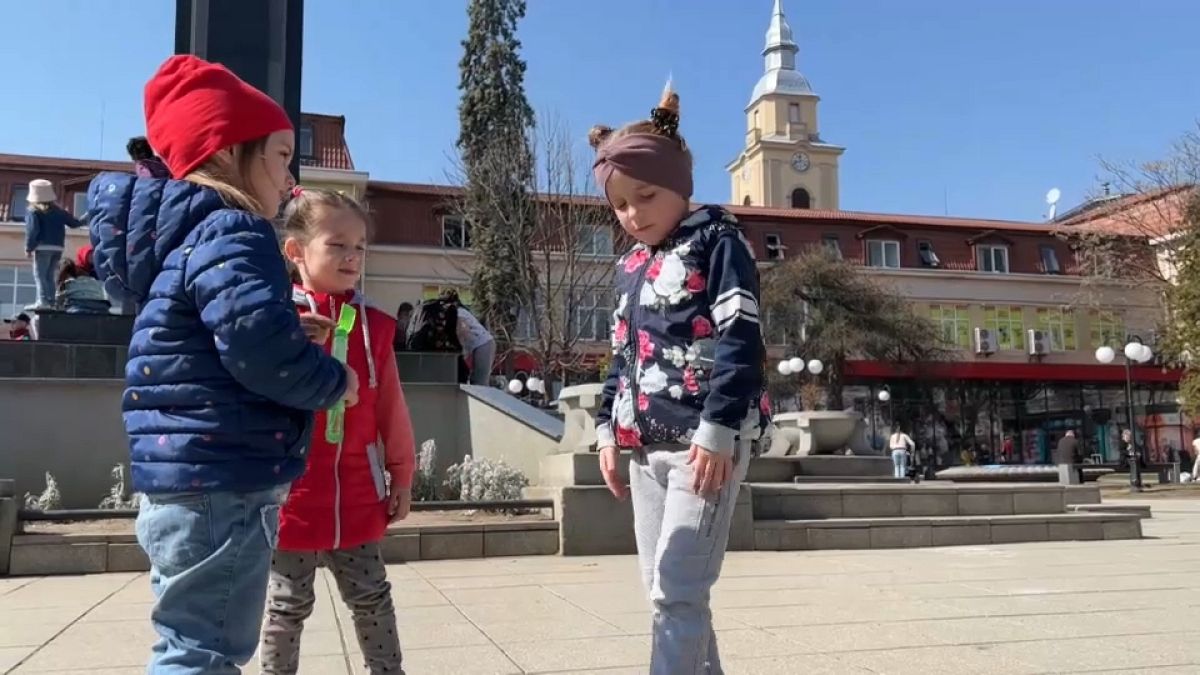Children of families who fled Ukraine's conflict zones are given counselling and art lessons in one town near the Hungarian border.
At first glance, there is no sign of war in Berehove, in southwestern Ukraine. Things look pretty normal. But many of the children playing in the town's main square were recently living in Kharkiv, Mykolayiv or Mariupol.
Their families have fled the fighting, in search of peace near the Hungarian border. Many are now living in schools and dormitories.
Ofelia and her daughter came from Kyiv and hope to survive the war here rather than in another neighbouring country.
"We don't want to go abroad in any way, we want to wait until the war is over and then we want to return home," Ofelia explained.
Children from conflict zones are treated by a psychologist and they have art lessons. The artwork is then sent to the soldiers fighting on the lines. The session helps them to process the events of the past few weeks.
"Some children, unfortunately, are unable to communicate after the terrible events. I don't even know what they went through," said the art teacher.
After just one month of war, almost of quarter of Ukraine's population has been displaced.
And while millions have fled across the border, there are now more than six and a half million internally displaced people still in the country.
Many have moved to towns and cities close to the border like Berehove, away from the major conflict zones. Locals say at least a quarter of the town's Hungarian community has already moved to Hungary.
There have been several air raid warnings in Berehove recently, but no actual bombing, so the locals don't bother with sirens anymore. However, schools have switched to distance learning.
"What I think is most defining is the uncertainty. We don't know if the war will arrive here or not if it does, when, and then, what to do."
